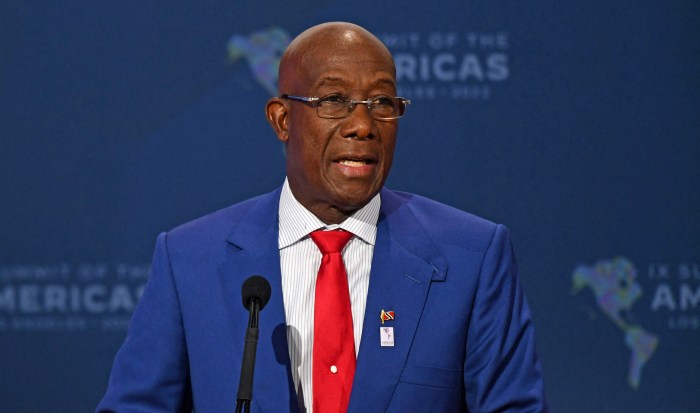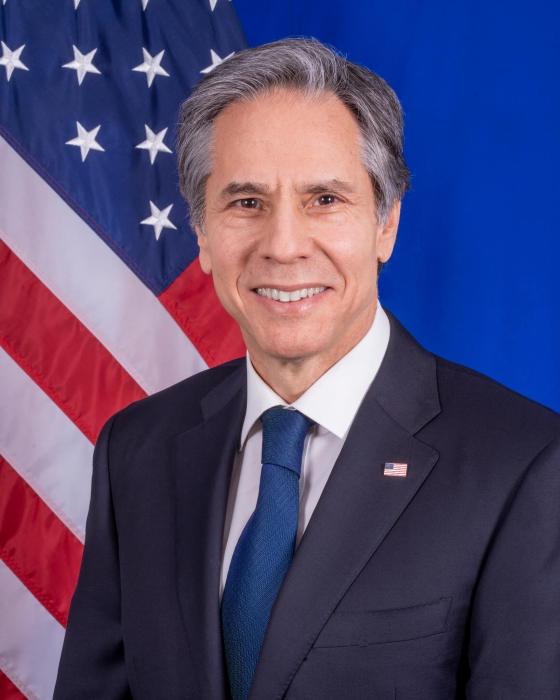So, as we hit the pivotal two-month mark prior to November’s mid-term elections, the buzz around control of the United States Senate has predictably intensified. Pundits and pollsters across the board seem inclined to giving an edge to Republicans to emerge from the elections with a slim advantage of maybe two seats. All of them, though, are hedging bets and noting how much Election Day turnout of the respective party bases could alter the picture. Even crackerjack Democratic strategist James Carville commented in a television interview the other day that if the GOP doesn’t have itself a Senate majority after the dust clears in November, its leaders would seriously have to look into what’s wrong with their party.
Carville, like other observers of the ebb and flow of American party politics, made note of how traditionally dicey it has been for the party of an incumbent president in the sixth year of a two-term presidency. Even that darling of all conservative darlings, Ronald Reagan, saw his Republicans lose the Senate in 1986, his sixth year. It is rational to assume that, considering the anti-Obama venom that has bubbled up over this president’s six years in office, 2014 figures to be tough sledding for Democrats. Republicans having done a no-holds-barred number in gerrymandering solidly hard-right Congressional Districts across the electoral landscape to keep them red for the foreseeable future, control of the House continues to be a non-issue. But given what the president (not to mention we, the people) has already had to endure with just one Capitol Hill chamber under GOP control, it is no endearing prospect, the full legislative branch committed to the kind of obstructionist, renegade M.O. that now typifies the House GOP.
Naturally, much of the focus in these Senate majority-control stakes is on toss-up states like North Carolina, Iowa, New Hampshire, and others. But what ensues in the normally safe Republican stronghold of Kansas suddenly figured to be a big deal in the Election-night math, after some developments a few days ago shook up the race in which veteran Republican Pat Roberts is up for re-election. The Tea Party supposedly viewed Roberts as coming up short in far- right style and substance and mounted a primary challenge, which he beat back. Even so, the scuttlebutt was that support for Roberts in the state wasn’t what it used to be, compounded perhaps by reports that he didn’t live in the state he represents. Those headwinds, though, didn’t look strong enough to prevent Roberts from defeating his Democratic opponent , Chad Taylor. But complicating matters was the presence in the race of Greg Orman, an independent candidate who, polls showed, was a stronger opponent for Roberts than the Democrat. Last week, when Taylor announced his withdrawal from the race, the ground shifted dramatically in Kansas. And the possibility of a non-Republican being elected to the Senate for the first time since the 1930s grew instantly stronger — with whatever the implications for reconfiguring the GOP game plan to assume Senate control next January. True to form, the state’s Republican secretary of state issued a ruling that the Democratic candidate’s name must remain on the ballot.
The Democrat’s decision to get out of the way is worthy of applause whether or not what has all the appearances of a nakedly political move by the secretary of state will stand (the candidate withdrew a full two months before the election, for heaven’s sake) — even if there was some friendly persuasion required to seal the deal. Being adult, pragmatic and public-spirited about such scenarios has been frequently shown to be beyond the capacity of players involved.
Taking one for the team is an off-limits concept for those who regard politics as a “me first” pursuit. Over the years we’ve had some showcase examples of ignoble conduct when there was a clear need for doing the opposite. Because of how it probably affected the course of early 21st century American history, the obstinate refusal of Ralph Nader to withdraw from the presidential ballot in Florida in 2000 remains a high-ranking instance of ego trumping the public good.
Nader’s absence from the ballot would very likely have meant Florida’s secretary of state being denied a spotlight turn in that vote count debacle and, later, Supreme Court conservatives not being called upon to hand the presidency to George W. Bush.
We’ll see whether the Democrats’ thanks to candidate Taylor will extend to stymieing this year’s GOP grab for Senate control. Or if, conversely, Republicans will be looking to declare Taylor Public Enemy Number One for being key in having those GOP ambitions frustrated. Either way, who would have thought that in steady-as-she-goes solidly red Kansas, there would be suspense surrounding what voters do come November?
Historically, mid-term elections are viewed as a presidential referendum. Based on all that has preceded them, the mid-terms this year will probably reflect anti-administration feeling to a degree equal to or surpassing some of the celebrated instances of presidential disfavor in the past. The calculus, more so if Republicans gain Senate control, doesn’t bode well for even a moderately productive final two years for this White House incumbent.



















